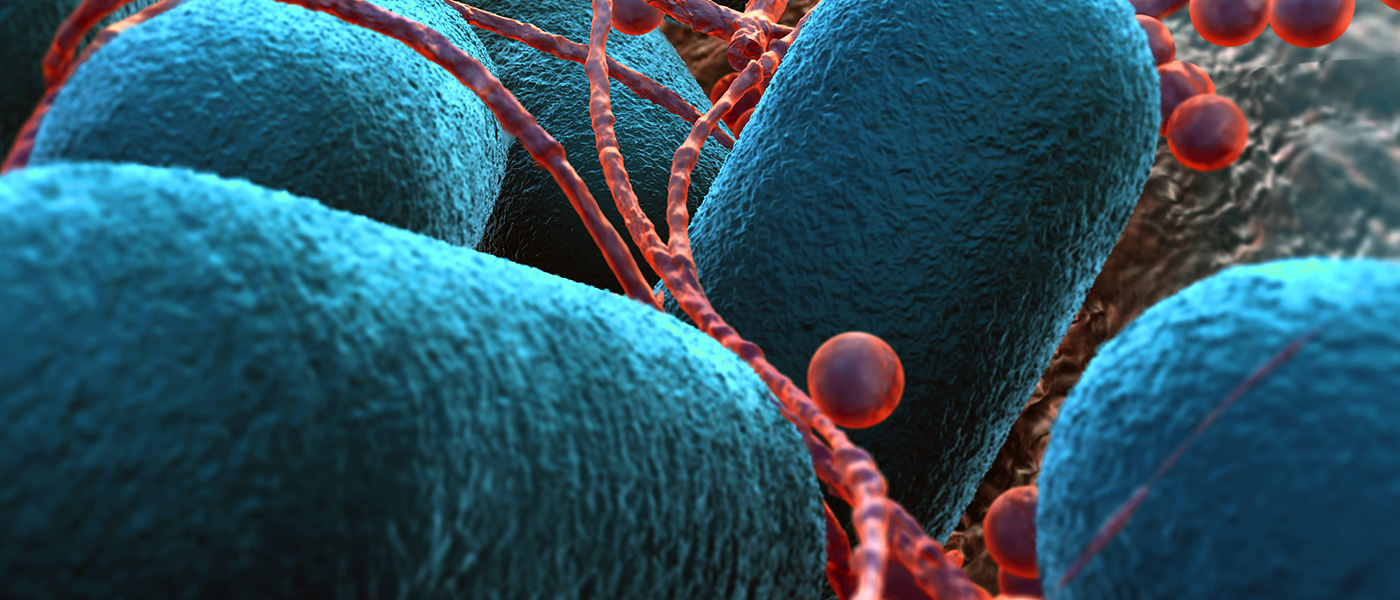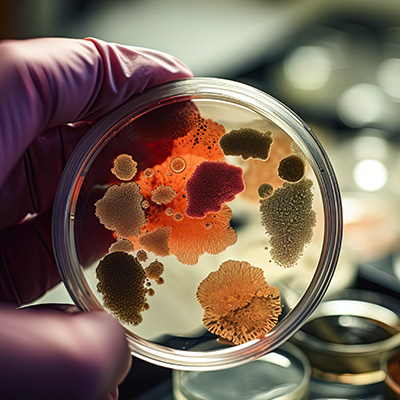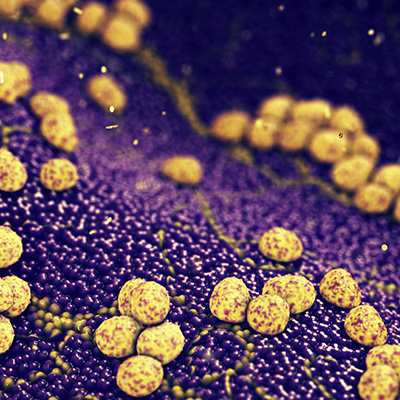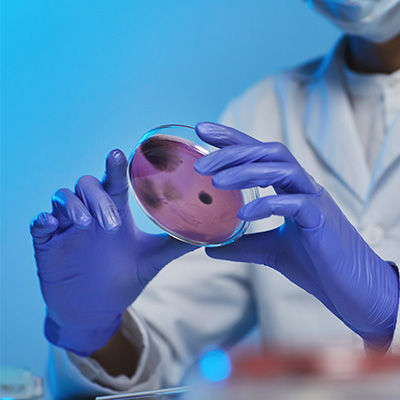Escherichia coli
Escherichia coli (E. coli) is a bacterium commonly found in the human intestine.
Most E. coli strains are harmless, but some cause serious infections including food poisoning, septic shock, meningitis, and urinary tract infections (UTIs). UTIs are mostly caused by uropathogenic E. coli (UPEC). UTIs are the primary cause for the prescription of antibiotics and thus represent a major driver of antimicrobial resistance evolution. Moreover, following standard-of-care antibiotic treatment, up to 50% of patients experience recurrent infections, necessitating further treatment.

Antibiotic-resistant E. coli are emerging with resistant strains which are listed as a critical priority for R&D of new antibiotics by the World Health Organization (WHO).
NCCR AntiResist is developing in-vitro models that approximate the physiological state of UPEC in the bladder of UTI patients. These models are used to identify the bacterial and host factors responsible for infection, persistence, and recurrence of UPEC.
Leadership of E. coli research
Prof. Knut Drescher
Prof. Knut Drescher
Research Page »
Prof. Dr. med. Thomas Kessler
Prof. Dr. med. Thomas Kessler
Research Page »







